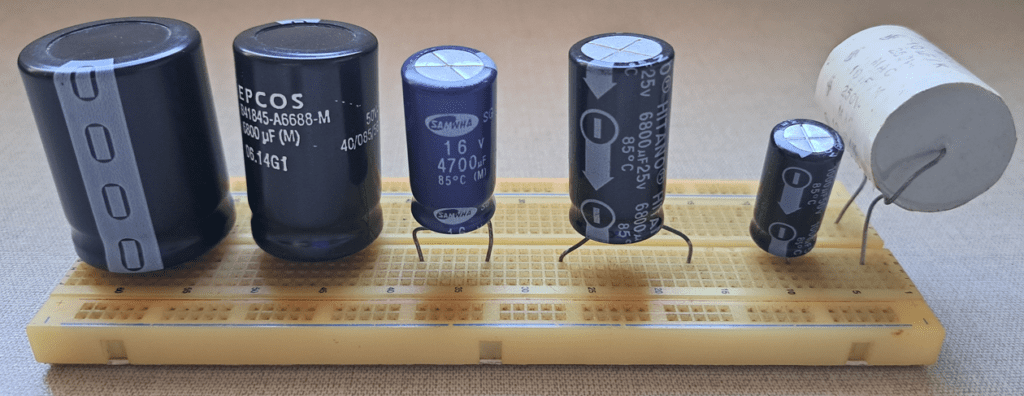Why does the electrolytic capacitor has polarity? Why there is a voltage limit? These and other questions are answered in this post.
In the post “Capacitance and inductance: more information”, there’s an explanation about how capacitor works, click on link below to access it.
Capacitance and inductance: more informationClick here
Inside the electrolytic capacitor
Why electrolytic capacitors have higher capacitance than the ones made of ceramic and polyester? Because the dielectric or insulating is thinner. Therefore, capacitance is higher due to smaller distance between the conductive plates. The insulating is made of oxide of same used element, for example, in an aluminum capacitor, insulating between conductors is made of aluminum oxide.

Electrolytic capacitor is built in asymmetric form. Anode is made of aluminum (Al), tantalum (Ta), niobium (Ni), titanium (Ti), zirconium (Zi) or hafnium (Hf). While cathode is made of a solid, liquid or in gel electrolyte, which involves anode and dielectric. Electrolyte’s chemical composition depends on the material on capacitor’s plates. And cathode is linked to a metal plate, which is connected to an external terminal.
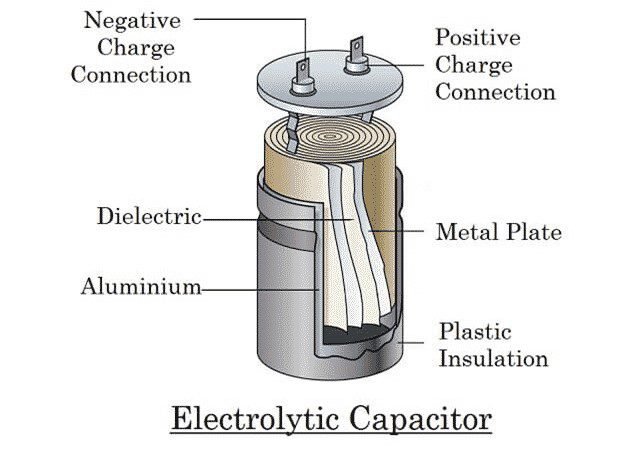
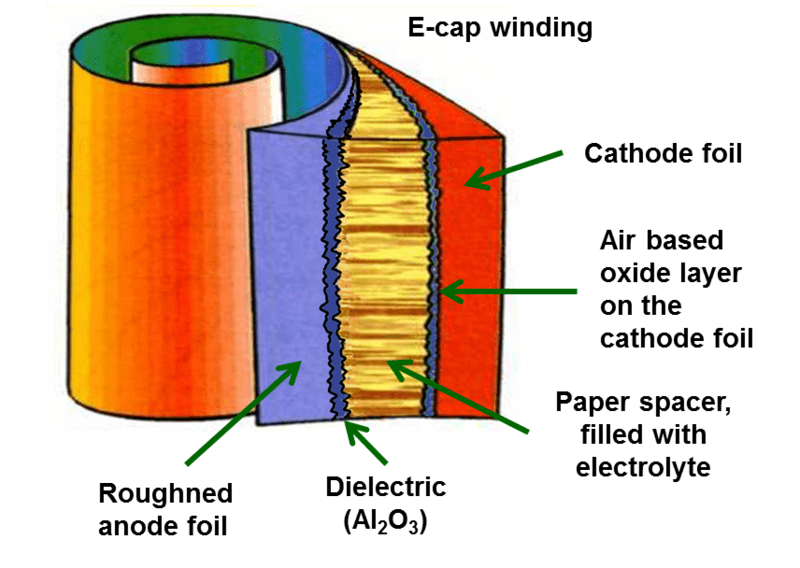
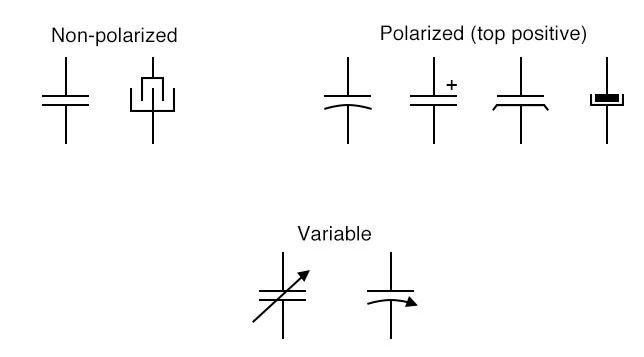
Why is electrolytic capacitor polarized?
Voltage on anode must be more positive than in cathode. What happens if capacitor’s polarity is inverted in a circuit? When the capacitor is polarized properly, the oxide layer is formed, due to anodizing. This dielectric layer has nanometers of thickness.
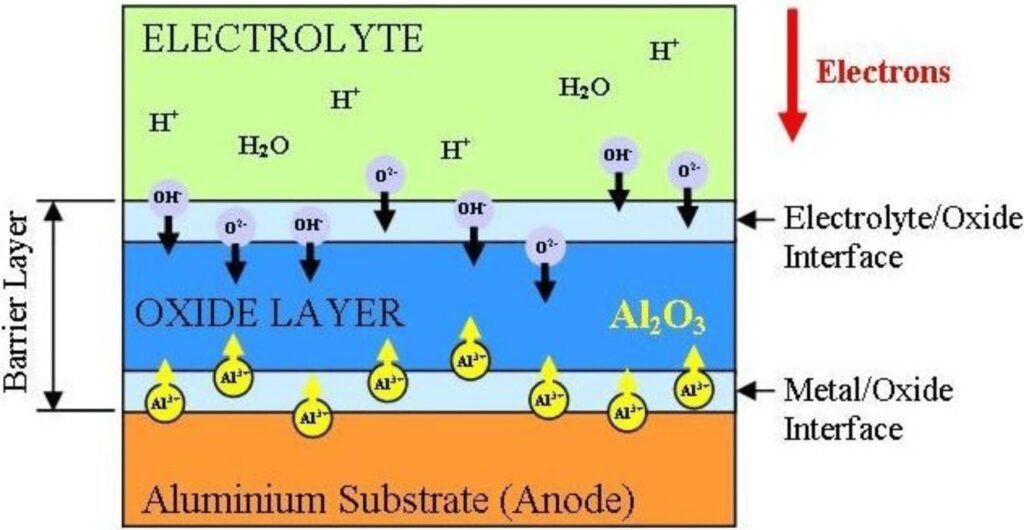
The general equation for oxide layer formation.
2Al+3H_{2}O\rightarrow Al_{2}O_{3}+3H_{2}
If capacitor is polarized on reverse, the oxide layer is destroyed, creating a short-circuit. Therefore, leakage current greatly increases, creating overheating. In addition to that, in reverse voltage, hydrogen ions on electrolyte will be attracted by negative pole, they will reach the metallic plate and will be converted in hydrogen gás (H_{2}), because they will receive electrons. The gas will increase pressure inside the capacitor, making it explode.

Why it has voltage limit?
Because with overvoltage, the dielectric is no longer an insulating and starts to conduct current. In the same way there are electric arcs on air, with enough high voltage and short distance. It will also increase leakage current, which causes capacitor’s overheating and possible explosion.

